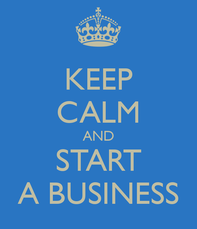 In Malawi there are many opportunities: we are highly import dependent and for those goods that are locally produced the quality tends to be low. Even for simple things like bricks and cement people prefer the versions produced in Zambia or Tanzania, our very own neighbours, because the local version is thought to be complete rubbish. As I have stated in a previous column, if you go into business purely to make money, your product will state that purpose loud and clear. Your prime concern in any business should be customer satisfaction. If you create a product with a view to making the customer happy, you'll produce quality. The problem is that this quality needs to be produced at a good price. Here are a few simple ideas: 1. FOOD I'm very much stating the obvious here but everyone needs to eat. The production of a food-related item is very scalable provided people like it. Students are a good target market because many of the facilities in town are beyond their budget. If you can create a budget-friendly food place, that niche market is all yours. Animal rearing - whether it's pork, beef or goat, you can rear these animals and sell the meat to big and small retailers? You’ll probably have to start with small retailers before the supermarkets will consider you. Create a strong brand using both print and radio advertising. Condiments - new and innovative herbs or spice mixes are something that urbanites frequently buy. You don't even have to imitate something that is already being made, like Nali or the Royco mixes, do something completely new. I hate it when people simply copy things that are out there: don't imitate, innovate. 2. LUGGAGE Basic school bags are something that every child in Malawi needs. Can you produce something of a high quality at a low price? You don't even have to produce this yourself. You can travel to China and source quality products. Many people moan about the poor quality goods from China but China produces a whole range: those fabulous clothes in UK and US stores also come from China. You get what you pay for and if you can buy large volumes you can get heavy discounts on quality products from the very China that currently sends us its cast offs! 3. CROCKERY Ceramics and china dishes are not scalable in Malawi. However, if you can source or create quality plastic or metal utensils different to what is currently available, you can do well. The types of plastic and metal plates currently available haven't changed in years; it's the same thing year in and year out. If you can design your own range and get that produced you could do well. 4. BASIC PERSONAL CARE: SOAPS, LOTIONS, BODY SCRUBBERS etc. Another scalable space. Makeup is less scalable because most budgets cannot stretch that far. My own father used to operate in this space and by producing a basic quality product he was competing with Unilever (Lever Brothers) an international company. Don't be intimidated by the presence of multinationals; in fact, in the current economic environment many international companies are deciding to leave. This presents opportunities for Malawians to produce goods for their own people. Look at who's leaving and see how you can fill the gap. "A man may die, nations may rise and fall, but an idea lives on." ~ John F. Kennedy.
0 Comments
 Last year I wrote a bit about how to come up with business ideas and I believe a few of you did come up with great ideas but the problem is many haven’t executed a single one of those ideas. I am always telling people that ideas are cheap and execution is everything. Even that guy you think is a complete idiot in the office comes up with great ideas – what differentiates the great from the average if taking the first step. Here’s how you can re-evaluate your idea. 1. Think Big Personally, I like the idea of scale. Try to do something that can be BIG. If you produce a basic product that many people need then you have a large customer base to satisfy and a potentially very large source of revenue. 2. Start Small Secondly, keep in mind that many big businesses started off small. Create "a small batch" of your first product and then roll it out. I use the term "batch" very loosely. For instance, when my dad started his bus company, Axa, he only ordered three buses; when it was established that there was adequate demand for the service he ordered 12 more buses taking it to 18 or so; then the next order took the bus count to 40. He thought big but he started small like any smart business person should. The principles of small batches are espoused in "The Lean Start-up" by Eric Ries. In this book, Mr Ries, a successful young entrepreneur talks about a variety of businesses that have established a "minimum viable product" (MVP), and marketed that before going big into a business. The MVP is the version of your product that has the fewest number of features and doesn't cost too much or take too long to produce so as to test the market. Once the business is started, operational costs can also be minimised by not producing too much stock so that your money isn't tied up in stock. This gives you flexibility. In fact, Toyota's business model is based on this principle. 3. Minimise your labour input What about businesses that depend on your personal labour? So you're a lawyer or a doctor or even a masseuse and your business idea is to start your own practice, can this be made scalable? Yes. The beauty of this type of business is that start up costs can be very low indeed. All you need is an office; to begin with you can work out of your own home or rent a small space in town. The problem here is that when you don't work you don't make money unlike with manufacturing and selling where you can hire unskilled people and quickly train them to do some of the work for you. With your own practice your plan from the outset should be to hire other well-qualified people that work under you and who earn a commission for business they bring in with you getting a cut of that revenue because it's your business. Ultimately, when your practice is big enough you should be able to step away from the day-to-day operations because enough money is coming in from the work that your staff produce. One problem. Are the people you are employing of your calibre or higher? Your goal SHOULD be to hire smarter folk because the higher the quality of your work force, the more (and bigger) the business you will attract. In the long run these guys may leave to start their own practice but for the time that you have them they can be a real asset to your business: train them up and incentivise them to stay. In summary, think of businesses that are a) scalable, b) produce small batches, c) employ high quality workers or train people up to a high standard. Then take the first step asap! "I’d rather have one percent of the efforts of 100 people than 100 percent of my own efforts.” ~ J. Paul Getty  Last year at around this time I wrote an article about how you can go about starting a business. I’m sure that those that read the article may have started getting ideas about what they can do or how they can make their current ideas even better – unfortunately, for the majority it ended there. Those ideas remained ideas and nothing has been executed. I always say ideas are cheap. Everyone, even the beggar on the street has ideas about how they can make their lives better but only execution matters. If things didn’t work out for you businesswise last year, it doesn’t matter; it’s a new year, wipe the slate clean and start afresh! If you're going to start a business, start it properly. This means having a proper framework in place (accountants, templates for invoices and receipts etc.) and starting out with good intentions. Real business people don't start out in business with the sole purpose of making money: that's a very poor reason to start a business. Making money should just be a by-product of another goal. You can start today. Grab a piece of paper and write out your execution plan for 2014. A few days ago I felt so inspired when I was out with my husband that in one hour at a café I mapped out my plan for the first half of 2014 and I have started executing it already. You can do the same – the difference between people who succeed and those poor timid souls that know neither victory nor defeat is ACTION! Let’s get to the nitty gritty: SHOULD YOU CREATE OR INNOVATE? If you're good at making something you very likely want to spend as much time as possible or at least more time making that product. Starting a business would allow you to spend more time making or creating the product you like and make a living at the same time. “I’M TOO YOUNG” / “I’M TOO OLD!” It's never too early to start a business and it's never too late either. Some people were born to be business people, it's in their DNA whilst others grow into enterprise; they find something they love to do and in the process learn that this passion can actually make them some money. So, what should you think about before you start a business? 1. What you love to do and how you can turn it into a business 2. How much money, if any, you will need to begin with 3. How you will market your business 4. Your one-month, six-month and twelve-month business goals You need to write all this on paper because writing it down is a sign of real commitment. How many items will you produce each month? What's your plan for growth? Most people never go beyond the "small business" stage because they don't plan. Planning is key. You don't need a multi-page business plan to start, either. Personally I think long business plans are a waste of time and an even bigger waste of paper. Some people spend ages on the planning stage because that of course stops them from starting; starting is when things begin to get really hard. A specific set of goals with realistic deadlines is all you need to embark on your business. Now go off to register your business and let's get rolling. Struggling for business ideas? I'll give a broad set of rules for coming up with business ideas next week. This article has made the assumption that most of you did not move to start a business, or those that did stalled along the way and I want to re-energise you. However, I also want to hear from those who have had modest or great success over the last year. Visit my Facebook page and leave me a comment or tell your story. All can participate facebook.com/GettingToWealthy. "To think too long about doing a thing often becomes its undoing." ~ Eva Young  This is the fifth and final week on CVs. If you have read every article in this 5-part series you should not only be able to write a PhD on the subject you should be getting many more interviews. Here go my final 13 tips: 33. Look decisive, don’t tarnish your loyalty card Employers want to hire someone that will stay for a while. If your CV shows that you chop and change jobs very regularly, this will act against you. It will show one or more of the following: You’re not loyal You’re indecisive You’re a risky hire Overall, the CV needs to be consistent. 34. Throw in some stats Numbers help to further credentialize you. If you’re applying for a sales position add examples of sales targets you have reached or exceeded. Example: Emerging Market FX Sales, Bank X · Increased sales revenue by 20% in first year and a further 15% in second year. · Was one of the top three sales people every single year for 5 years You can also throw in statistics showing your ranking at school or in university. 35. Don’t include reasons for why you left your old job It’s not necessary on a CV as it doesn’t add value to why you might be a good candidate for the job. Of course, it is likely to come up in interviews so make sure you have a good response to the question. 36. Don’t say anything negative There is no space on a CV for complaints or criticisms of previous employers. If you didn’t like a certain job or activity that you took part in, don’t say that. Recruiters don’t like complainers or problem-makers. 37. Don’t lie, don’t exaggerate Your employer will find out when you start work if you exaggerated anything or a background check might bring out inconsistencies. You could lose your job, or end up in court if particularly egregious. It’s not worth it, don’t do it. 38. Have different CVs for different roles If you are applying for exactly the same type of job in different companies then the same CV will suffice. However, if you are making applications based on different job specs then you need to customise your CV. 39. Before you send it off, match your CV against the job specification Ensure that your CV includes as much as possible regarding what the employer has asked for. That said, a major point to keep in mind: you don’t need to have 100% of what has been requested. Statistics show that men frequently apply for a job even when they only partly match the specification. Women usually only make the application when they have everything. I say, be a man! 40. Check it twice then get a fresh pair of eyes to look over it again This is related to the point on typos. When you have been working on your CV for a long time you might fail to see inconsistencies that a fresh pair of eyes will pick up immediately. Get a professional resume writer to review your resume and increase your chances of getting a job interview. 41. Key words matter Nowadays recruiters including head hunters frequently use searchable databases to find a candidate. This is also true on LinkedIn. When I am looking for someone I will type “Head of Diversity Recruiting at Company X” or “Marketing Expert, New York” etc. Make sure your CV uses the correct keywords for the job you are looking for, so you are visible on these searches. 42. Mention any prominent industry specialists that you’ve worked with This will help to credentialize you. Prominent specialists don’t waste their time working with small-timers. Having had access to and worked with people of this calibre adds credibility to your profile. 43. No need for references It is more common for people to just write “References available on request”. Some people think this is daft because that’s stating the obvious. However, I would say include this line if there’s space. It doesn’t do you any harm. 44. Update your CV and your LinkedIn profile regularly Ensure you have an updated CV and profile on LinkedIn so you’re ready to take advantage of your next opportunity. We live in a fast paced world; your next job offer is always around the corner. Head hunters are constantly scanning people’s profiles on LinkedIn to fill new positions. Gone are the days when people sat in the same job for 30 to 40 years at a time. 45. Finally, consider getting professional help. To guarantee a high-quality CV get a professional CV writer to help you do it. Over the last five weeks I've taken you through a very extensive course in CV writing. If getting a new job is on the cards for this new year: you are very well set! “Success is a science; if you have the conditions, you get the result.” Oscar Wilde |
For 2 years until early 2014 I wrote a weekly personal finance and business column for Malawi's leading media house, The Times Group. The target is middle-class, working African women.
This is a reproduction of the articles that appeared in the weekend edition of Malawi News. Categories
All
Archives
May 2014
|
Heather Katsonga-Woodward, a massive personal finance fanatic.
** All views expressed are my own and not those of any employer, past or present. ** Please get professional advice before re-arranging your personal finances.




 RSS Feed
RSS Feed



